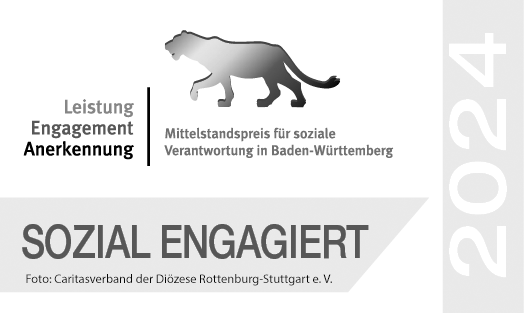Artificial Intelligence (AI) Business Impact
You are here: Programs & Courses » Open Certificate Courses » Artificial Intelligence (AI) Business Impact
How to Leverage Artificial Intelligence to Create Business Value and Growth
Unlock the potential of AI to drive business value, growth and innovation. This course empowers managers to transform business models, enhance efficiency, and create substantial business impact. Discover how AI can be a game-changer for generating revenue and improving customer satisfaction. This program offers actionable strategies and real-world applications to help you leverage AI, especially Generative AI, for superior decision-making and competitive advantage. Join us to unlock the full potential of AI for your business success.
The program is open to participants from all backgrounds, as no specific technological expertise is required. The objective is to gain an understanding of the organizational and managerial impacts of these technologies and how to effectively implement them in the workplace, without delving into the technical details.
Key Facts

Program Structure
One on-campus module

Program Dates
3 days, online kick-off June 17, 1-2 PM CEST, on site June 30 - July 2, 2025

Location
On site, Mannheim, Germany

Language
English

Course Fee
€3,500 (+7% VAT), Early-bird price €2,900 (+7% VAT) if you register by May 7, 2025

Prerequisites
Good English language skills

Credits
Certificate awarded by Mannheim Business School

Reputation
Best ranked German business school in Business Analytics
Perspectives
AI Business Impact Courses at Mannheim Business School
Gain insights from Prof. Dr. Florian Stahl, Academic Director of all Management Analytics and AI programs at Mannheim Business School, as he highlights why understanding AI is crucial in today’s fast-paced business world and why an on-site, hands-on training is more impactful than online courses.
Discover more about Prof. Dr. Florian Stahl below and hear directly from him how to leverage AI to drive business value, growth, and innovation during the AI Business Business Impact course.
Upcoming Information Events
Benefits of Artificial Intelligence for Business Leaders
AI Literacy: Develop a deep comprehension of AI's role in fostering innovation and gaining a competitive edge.
Practical Applications: Explore real-life examples of AI implementations to grasp their strategic benefits and overcome implementation challenges.
Business Value Creation: Identify and seize opportunities to drive significant business growth through effective AI strategies.
Strategic Integration: Acquire actionable insights to seamlessly integrate AI solutions into your organization.
Competitive Edge: Enhance your organization’s ability to navigate market disruptions and leverage AI for sustained business growth.
Overview
Welcome to our comprehensive „Artificial Intelligence (AI) Business Impact” program, designed to equip you with the knowledge and strategies needed to harness Artificial Intelligence for significant business value and growth. This course will empower you to leverage AI technologies, especially Gen AI, with a focus on business impact and value and to unlock new growth possibilities.
This program is ideal for managers and decision-makers aiming to leverage AI for business value and sustainable business growth. You will get a chance to connect with a diverse group of professionals and industry peers to expand your network and exchange ideas on AI innovation and strategy. By the end of this course, you will be equipped with actionable strategies and practical knowledge to identify, prioritize and implement AI initiatives that drive business value and position your organization as a success case in the AI revolution of your industry.
Methodology & Course Contents
Our Artificial Intelligence (AI) Business Impact program utilizes a variety of engaging and interactive teaching approaches. These include dynamic group discussions, expert-led lectures, practical exercises and real-world use cases – all designed to enhance your ability to drive transformation. These methods are carefully integrated to create an ideal learning atmosphere.
Introduction to Artificial Intelligence
Understand differences and similarities of AI technologies and their business applications.
Role of AI in Business Operations, Products, and Services
Explore how AI is transforming traditional business operations, enhancing product development, and driving the creation of new data-driven services.
Recent AI Success Cases
Gain insights into recent AI success stories across major industries, illustrating how AI has revolutionized business models and operations.
Identifying Transformative AI Use Cases
Discover methods to identify innovative AI use cases that can disrupt markets and create competitive advantage. Learn how to facilitate AI ideation workshops with clients to foster innovation.
Assessing Business Value
Understand how to define metrics and business KPIs to measure AI success and forecast its impact on business outcomes.
Prioritization of AI Use Cases
Learn strategies to prioritize AI initiatives and select use cases for pilot projects based on strategic alignment and potential ROI.
Strategic Implementation
Learn how to implement AI projects to drive business growth.
Presenting the AI Business Case
Master the art of presenting AI business cases effectively to stakeholders, showcasing ROI projections, strategic alignment, and risk management strategies.
Ethical and Responsible AI
Navigate ethical considerations for responsible AI use.
Future Trends in AI
Explore upcoming AI trends and how they can be leveraged for business advantage.
Practical Workshops
Develop actionable AI cases for your business and a blue print for your AI business strategy.
Lecturers
Prof. Dr. Florian Stahl
Prof. Florian Stahl is Academic Director of all Management Analytics and AI programs and initiatives at Mannheim Business School and Co-Director of Mannheim Center for Data Science. His research interests are primarily in empirical quantitative marketing, business economics and information systems research. Specifically, his research addresses business related questions of the digital economy and, in particular, of online social networks and social media. Before joining the University of Mannheim Faculty of Business Administration in 2013, Florian Stahl has held academic positions at Columbia Business School in New York, the University of St. Gallen (HSG), and University of Zurich.
Prof. Dr. Markus Strohmaier
Markus Strohmaier leads the Chair for Data-Science in the Economic and Social Sciences at University of Mannheim. He is the Scientific Coordinator for Digital Behavioral Data at GESIS - Leibniz Institute for the Social Sciences and an External Faculty Member at the Complexity Science Hub Vienna. From 2013-2017 he was a Professor for Web-Science at University of Koblenz-Landau and the founder and scientific director of the department for Computational Social Science at GESIS.
From 2017-2021 he held the Chair for Computational Social Science and Humanities at RWTH Aachen University. Before that he was a Post-Doc at the University of Toronto (Canada), an Assistant Professor at Graz University of Technology (Austria), a visiting scientist at (XEROX) Parc (USA), and a Visiting Assistant Professor at Stanford University (USA). He was Editor in Chief for EPJ Data-Science from 2018-2022 and a founding co-chair of the Computational Social Science section of the German Informatics Society.
Prof. Strohmaier is interested in applying and developing computational techniques to research challenges on the intersection between computer science and the economic and social sciences.
Registration and Course Fees
- Registrations are open until June 11, 2025, via an e-mail to ee@mannheim-business-school.com.
- The course fee is €3,500 (+7% VAT). Register by May 7, 2025, to save €600 with our early-bird offer!
- Alumni and participants at Mannheim Business School their spouses and co-habiting partners, and alumni, staff and participants of the University of Mannheim are eligible for a 20% discount.
- Discount of €1,000 on the degree program if you decide to study the Mannheim Master in Management Analytics & AI after doing the Artificial Intelligence (AI) Business Impact Certificate.
- Good to know: Tax offices usually recognize costs for your further education if they are job-related. Depending on your tax status in Germany, you may claim up to 50% of the tuition fee and related travel expenses on your annual tax return. Outside of Germany, please check details with a tax advisor in your country of residence. Please note: Each federal state in Germany has regulations on educational leave. Check here to see which regulations apply in your federal state and get in touch with us to discuss your individual situation.
If you have any questions about the course, our MBS Open Courses & Certificates Team will be happy to answer them.
Contact Person

Downloads
- Registration Form Artificial Intelligence (AI) Business Impact
- Factsheet Artificial Intelligence (AI) Business Impact











